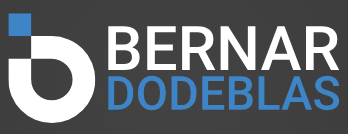
Beautiful Peace Ramadan, the holiest month in Islam, holds profound significance for Muslims around the world, including those residing in the United States. In the USA, Ramadan is celebrated amidst a diverse cultural landscape, where Muslims from various backgrounds come together to observe this sacred period of fasting, prayer, and reflection. This comprehensive exploration delves into the cultural tapestry of Ramadan in the USA in Beautiful Peace, highlighting its traditions, practices, and impact on American society.
Understanding Beautiful Peace the Muslim Population in the USA
Demographic Overview
The Muslim community in the United States is diverse and multifaceted, representing a mosaic of cultures, ethnicities, and religious traditions.
Immigrant Origins
Many Muslims Beautiful Peace in the USA are immigrants or descendants of immigrants from countries such as Pakistan, India, Bangladesh, Egypt, and Syria. They bring with them rich cultural heritage and religious practices that shape the observance of Ramadan in American society.
African American Muslims
A significant portion of the American Muslim Beautiful Peace population comprises African Americans who converted to Islam during the civil rights movement of the 20th century. Their unique history and experiences contribute to the diversity of Ramadan observance in the USA.
Converts and Reverts
In addition to immigrant and African American Muslims, there is a growing number of converts and reverts to Islam from diverse racial, ethnic, and religious backgrounds. Their integration into the American Muslim community adds further layers of cultural richness to the observance of Ramadan.
Observing Ramadan Beautiful Peace in the USA
Fasting and Prayer
During Ramadan, Muslims in the USA adhere to the pillars of fasting and prayer, abstaining from food, drink, smoking, and other physical needs from dawn until sunset. They also engage in increased acts of worship, including recitation of the Quran, nightly prayers known as Taraweeh, and acts of charity and kindness.
Balancing Beautiful Peace Religious Observance and Daily Life
For many American Muslims, observing Ramadan requires a delicate balance between religious obligations and daily responsibilities such as work, school, and family commitments. They navigate the challenges of fasting while maintaining productivity and efficiency in their professional and personal lives.
Community Spirit
Despite the individual nature of fasting, Ramadan fosters a sense of community and solidarity among Muslims in the USA. Mosques, Islamic centers, and community organizations organize iftar dinners, social gatherings, and religious events that bring people together to break their fast, pray, and celebrate the blessings of Ramadan.
Celebrating Diversity: Ramadan Events and Activities
Cultural Festivals and Bazaars
Throughout Ramadan Beautiful Peace, cities across the USA host cultural festivals, bazaars, and events that showcase the diversity of Muslim communities. These gatherings feature traditional foods, music, art, and performances from various cultural backgrounds, offering opportunities for interfaith dialogue, cultural exchange, and community engagement.
Interfaith Dialogue and Collaboration
Interfaith iftar dinners, panel discussions, and community service projects are common during Ramadan, bringing together Muslims and people of other faiths to foster understanding, tolerance, and cooperation. These initiatives promote dialogue, bridge cultural divides, and build stronger bonds of friendship and solidarity among diverse religious communities.
Charity and Social Justice Initiatives
Ramadan is also a time for philanthropy and social activism among American Muslims. Many mosques and Islamic organizations organize food drives, clothing donations, and fundraising campaigns to support local charities, humanitarian causes, and marginalized communities in need.
Challenges and Opportunities
Addressing Misconceptions and Stereotypes
Despite the cultural richness and diversity of American Muslims, they often face discrimination, prejudice, and Islamophobia in various spheres of society. Ramadan presents an opportunity to challenge misconceptions and stereotypes about Islam and Muslims, promote accurate portrayals of the faith, and foster greater understanding and acceptance within society.
Educational Outreach
Educational initiatives, public awareness campaigns, and interfaith dialogue programs can help dispel myths and misconceptions about Islam and Muslims, raise awareness of Ramadan and its significance, and promote positive representations of Muslims in the media, schools, and public discourse.
Advocacy and Empowerment
American Muslims can advocate for their rights, dignity, and inclusion in society through political engagement, civic participation, and grassroots activism. By amplifying their voices, mobilizing their communities, and building alliances with allies and advocates, they can address systemic injustices and promote social change.
Future Perspectives: Beautiful Peace Ramadan in a Diverse America
Growing Recognition and Acceptance
As the Muslim population in the USA continues to grow and diversify, Ramadan is increasingly recognized and celebrated as part of the American cultural landscape. Public officials, schools, and employers are becoming more accommodating of Muslim religious practices and observances, reflecting a broader commitment to religious freedom and diversity.
Cultural Integration and Adaptation
While maintaining their religious identity and traditions, American Muslims also integrate and adapt to the cultural norms and values of American society. Ramadan serves as a time for spiritual renewal, cultural exchange, and intergenerational dialogue that enriches the fabric of American life and strengthens the bonds of citizenship and belonging.
Bridge-Building and Solidarity
Ramadan Beautiful Peace fosters bridge-building and solidarity among diverse communities in the USA, transcending religious, cultural, and ethnic divides. By coming together to break bread, share experiences, and celebrate common values of compassion, generosity, and service, Americans of all backgrounds can forge stronger connections and build a more inclusive and harmonious society.
Conclusion
Ramadan in the USA is a celebration of faith, diversity, and community, embodying the values of tolerance, compassion, and unity that are fundamental to American identity. As Muslims across the nation observe this sacred month, they contribute to the cultural richness and pluralism of American society, enriching the tapestry of religious expression and cultural diversity that defines the American experience. Through dialogue, collaboration, and mutual respect, Americans of all backgrounds can learn from each other, celebrate their differences, and work together to build a more inclusive, equitable, and harmonious future for all.
